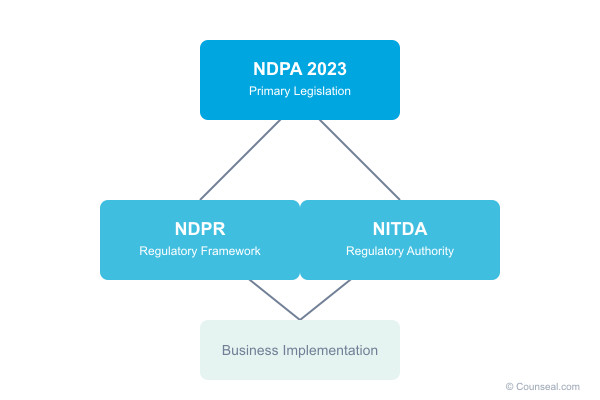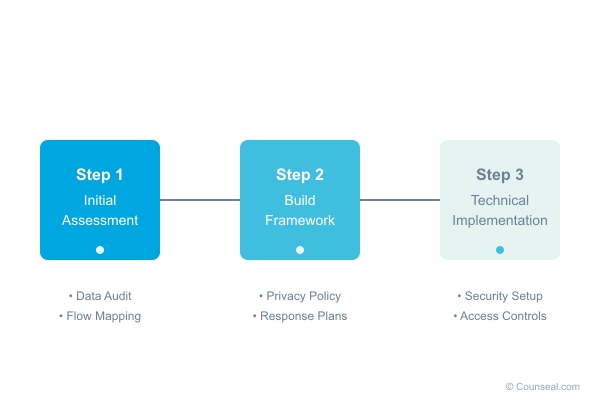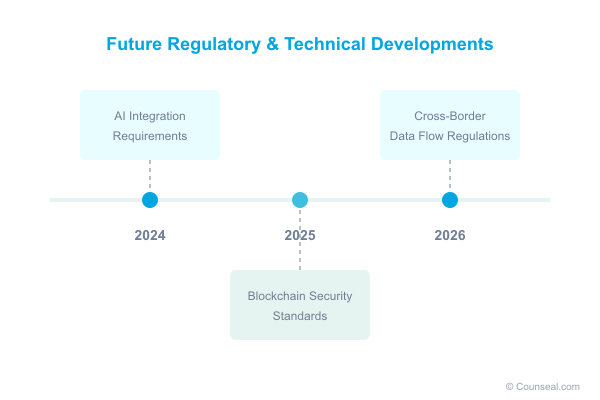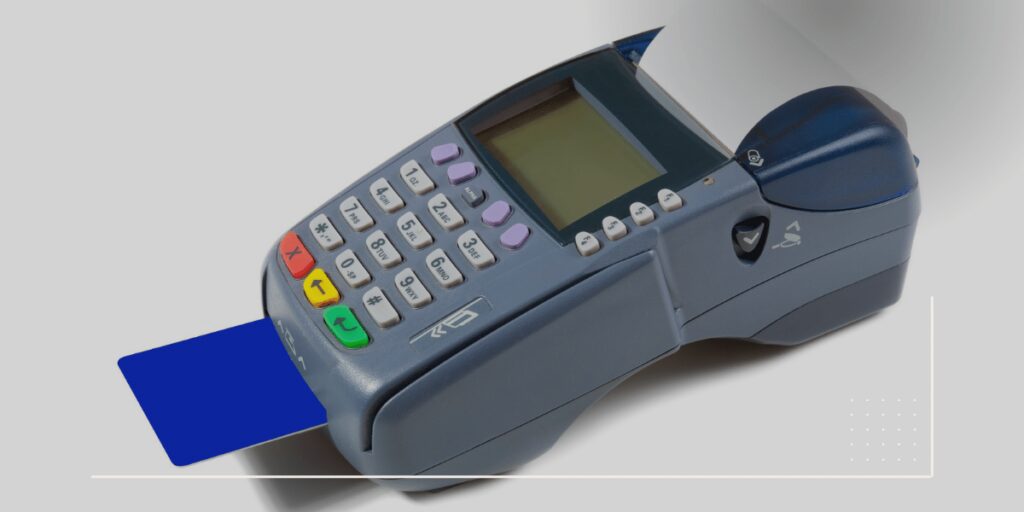Data Protection and Privacy Regulations in Nigeria: A Business Guide

by Counseal Team
Updated January 27, 2025

In Nigeria’s rapidly evolving digital landscape, data protection has become a critical concern for businesses. This guide provides essential insights into Nigeria’s data protection framework, focusing on practical implementation and compliance strategies for entrepreneurs and business leaders.
Understanding the Nigerian Data Protection Framework
Navigating Nigeria’s data protection landscape requires a clear understanding of the regulatory framework that governs how businesses collect, process, and store data. This section breaks down the key regulations and requirements that every Nigerian business owner needs to know to ensure compliance and protect their operations.
Current Regulatory Landscape
- Nigeria Data Protection Act (NDPA) 2023
- Nigeria Data Protection Regulation (NDPR)
- National Information Technology Development Agency (NITDA) guidelines

Key Requirements for Businesses
- Mandatory data protection registration
- Regular data protection audits
- Appointment of Data Protection Officers
- Implementation of data security measures
- Regular staff training
Practical Implementation Guide
With the regulatory framework in mind, let’s translate these requirements into actionable steps. This section provides a systematic approach to implementing data protection measures in your business, ensuring both compliance and operational efficiency.
Step 1: Initial Compliance Assessment
- Conduct a data audit
- Map data flows
- Identify sensitive data points
- Document current security measures
Step 2: Building Your Data Protection Framework
- Develop privacy policies
- Implement consent mechanisms
- Create incident response plans
- Establish data retention schedules

Step 3: Technical Security Measures
- Encryption protocols
- Access controls
- Regular security updates
- Backup systems
- Network security
Compliance Costs and ROI
Understanding the financial implications of data protection compliance is crucial for business planning. While the initial investment may seem substantial, the long-term benefits far outweigh the costs. Here’s a detailed breakdown of what to expect and the returns you can anticipate.
Investment Areas
- Technology infrastructure
- Staff training
- Professional services
- Regular audits
- Documentation systems
Benefits
- Enhanced customer trust
- Reduced breach risks
- Competitive advantage
- International market access
- Legal compliance
Real-World Implementation Examples
Case Study: Nigerian FinTech Compliance
A Lagos-based fintech startup implemented robust data protection measures following the NDPA guidelines:
- Encrypted all customer data
- Implemented two-factor authentication
- Conducted monthly security audits
- Result: 40% increase in customer trust metrics
Best Practices and Common Pitfalls
Best Practices
- Regular staff training
- Documentation of all processes
- Periodic security assessments
- Clear communication with stakeholders
- Regular policy updates
Common Pitfalls
- Inadequate staff training
- Poor documentation
- Irregular security updates
- Weak access controls
- Insufficient breach response planning
Future Outlook
As technology evolves and digital transformation accelerates across Nigeria, the data protection landscape continues to evolve. Understanding upcoming trends and preparing for future changes is essential for maintaining long-term compliance and competitive advantage.
Emerging Trends
- AI and machine learning in data protection
- Blockchain for data security
- Enhanced cross-border data regulations
- Increased focus on consumer rights

Resources and Support
Key Contacts
- NITDA: [Contact details]
- Data Protection Compliance Organizations (DPCOs)
- Professional associations
Useful Tools and Resources
Data Protection Assessment Tools
- NITDA-approved self-assessment toolkit
- Automated risk assessment platforms
- Data mapping software
- Privacy impact assessment templates
- Compliance tracking systems
Policy Development Resources
- Customizable privacy policy templates
- Cookie consent managers
- Data processing agreement generators
- DPIA (Data Protection Impact Assessment) frameworks
- Policy review checklist generators
Training and Development Tools
- Online compliance training platforms
- Interactive data protection workshops
- Staff assessment modules
- Incident response simulators
- Role-specific training materials
Audit and Monitoring Solutions
- Data protection audit software
- Security scanning tools
- Breach detection systems
- Access monitoring platforms
- Documentation management systems
Each tool category includes both free and premium options, allowing businesses to choose solutions that match their budget and needs. Regular updates ensure alignment with current regulations.
Next Steps for Your Business
The path to data protection compliance begins with these essential steps:
- Conduct initial data audit
- Develop compliance roadmap
- Implement security measures
- Train staff
- Regular review and updates
Take Action Today
Don’t wait for a data breach to prioritize your business’s data protection. Counseal’s team of expert consultants is ready to guide you through every step of your compliance journey.
Why Choose Counseal?
- Specialized expertise in Nigerian data protection laws
- Customized solutions for businesses of all sizes
- Ongoing support and updates
- Proven track record of successful implementations
Ready to secure your business’s future? Visit counseal.com/start to begin your data protection journey with a free consultation.
References
- NITDA Guidelines 2023
- NDPA Documentation
- Industry Reports
- Expert Consultations





